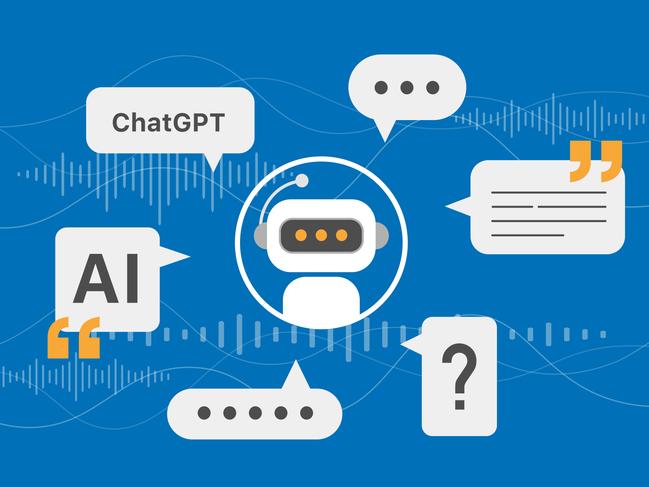In many disciplines in higher education, the essay has long been the place where students show what they have learned by describing, substantiating and synthesising the content of their lectures and reading lists. At the same time, we have also long recognised, in student learning, the importance of moving beyond a focus on content and articulating more precisely what our students will be learning.
In rapidly changing societies experiencing continuous technological innovation, we should focus on developing the skills and attitudes that prepare our students to be effective citizens, and flexible and adaptable enough to enter a changing world of work. Of course, content remains important – it’s what makes a disciplinary focus – but how to access it, engage with it and use it needs more emphasis in curricula.
- AI as a catalyst for assessment innovation
- Ten tips when instigating an assessment transformation programme
- Apply the principles of critical pedagogy to GenAI
This is not a new challenge, but AI tools are prompting those of us who work in higher education to revisit foundational questions, such as: what is good education? How can we design approaches to teaching, learning and assessment to ensure we are educating our students to be ethical and effective members of society with disciplinary and interdisciplinary expertise, and the appropriate mix of knowledge, skills and attitudes? How can we partner with students in this endeavour? What is the purpose of the essay?
Exploring the essay
The idea of the essay dates to at least Montaigne’s Essais, published in 1580. The roots of different forms of argumentation and reflective writing stretch back further. In higher education, the essay increasingly became the norm in the UK and US during the 19th and 20th century.
The idea of an “attempt” or “testing” of a thought is etymologically embedded in the word itself. Yet, too often we lose sight of this when using essays as assessments.
Today, the essay and other long form writing are still considered intrinsic to the pedagogy of certain disciplines. But the essay has become a problem as well as an opportunity for academia.
So, in June 2024, a group of academics from King’s College London, the London School of Economics and Political Science, the University of Sydney and Richmond American University came together to explore the future of the essay in the age of AI and devise principles for its continued role in learning and assessment – a manifesto, if you will.
Problems and opportunities
There are several problems with the essay.
First, the shiny essay, the product itself, becomes a proxy for the learning. We too easily value the edifice over the process of producing it. We have neglected to reflect on the purpose of setting essays, instead going through the motions of measuring the presence of the “right” amount of information and a “sufficient” amount of scholarship. We ostensibly define these things in guidelines and marking criteria, but these can simultaneously (and perhaps even contradictorily) reduce the essay to an expected formula. If we genuinely value the processes and learning involved, shouldn’t we be elevating and assessing the essay-writing process as much as, or alongside, the final product?
Second, the essay as a concept is notoriously hard to define, and is often discipline-specific. The understanding of what makes a good essay is too often simply expected of students, privileging those who have certain forms of cultural capital and have been educated within a culture with the same tacit understanding of an essay. Those without this assumed knowledge are often left to catch up and fill in the gaps themselves.
Despite these issues and, indeed, with explicit consideration of them, the essay can remain a critical component in education. The essay is highly valued for good reason – it’s an opportunity to develop critical skills intrinsic to the core identity of certain disciplines. The expression of critical thought, the exploration of a single idea, the synthesis of others, the weaving together of multiple perspectives on a single idea or a point, the summation of different thinking through scholarship and reading around the subject, and the building of an argument. How to share that value? Even pre-ChatGPT, one of the reasons we had such a problem with essay mills in the sector is that we did too little work on these cognitive and metacognitive aspects of essay writing.
If large language models can, with iteration and the right prompts, produce a passable essay (and they will inevitably get better at doing this), we need to reappraise the essay. Clearly, any teacher who, with a single ChatGPT prompt, can generate an essay that would achieve an acceptable pass on an undergraduate assessment, needs to look at how they have framed their question as well as the design of the assessment. Ideally, they would do some of this in partnership with their students – in the manifesto, we encourage open discussions between students and educators about the purpose of essays and AI integration.
Rejuvenating the essay
So how do we revitalise the essay? A renaissance of the essay requires a focus on the processes of reflection, research and writing, emphasising the different elements that make up the essay as much as the output. This approach sees assessment not as the final evaluation or testing of learning, but an integral part of the learning process itself. Any renaissance of the essay necessitates acceptance that, just as in other forms of academic writing, the essay is something that iterates over time and is something that improves with feedback from peers and reviewers. The most important learning often comes from the mistakes we make along the way – something we, as teachers and students alike, should learn to value.
While valuing both the process and product of essay writing, we should also ask ourselves whether we really need as much writing as many of us have in our current assessment diets. Some educational cultures, such as Germany and Norway, and certain disciplines, such as medicine and the arts, embrace and even privilege oral methods of assessment. The revitalisation of the essay calls on us to define exactly what disciplinary or interdisciplinary skills and attitudes we expect our students to develop. Then we need to consider the essay alongside other methods of assessment, which are potentially more innovative and creative, involve multimedia and are not simply taken as a given, born out of tradition.
Generative AI is disruptive, complex, controversial and in so many ways unknowable. While we must take it seriously, we also have a responsibility to support our students (and colleagues) to become adept at using these tools. As they evolve, human/AI hybrid writing seems an inevitable consequence in many disciplines and professional roles. Making opportunities to support students in effective, critical and ethical use of these tools will support their wider information, digital and AI critical literacies.
We offer this manifesto as a provocation for debate and discussion; as a set of principles to use as a starting point for the review of assessment on your modules and programmes; and to enable you, your peers and your students to reconsider the place of the essay and other long-form writing in learning and assessment in your discipline. The essay’s true value lies not in its final form, but in the critical thinking journey it represents.
An earlier version of this piece was published on the LSE Impact of Social Sciences Blog and the LSE Higher Education Blog.
Claire Gordon is director of the Eden Centre for Education Enhancement at the London School of Economics and Political Science and Martin Compton leads on AI and innovation in education at King’s College London.
If you would like advice and insight from academics and university staff delivered direct to your inbox each week, sign up for the Campus newsletter.




comment